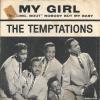- Replies 16
- Views 3.3k
- Created
- Last Reply
Most active in this topic
-
Paul-s 4 posts
-
Chalky 3 posts
-
Eddie Hubbard 2 posts
-
Seano 2 posts
Most Popular Posts
-
So Ady gets published on bootlegs yet my painstaking work on the subject got turned down ! An extract from chapter 38 "That's a bootleg. That's a bootleg. That's a bootleg. That's not a boot
-
It's encouraging to see the discussion on here and my respect to those taking the time to read and critique it. It was, I believe, compiled to present Northern Soul as a clear field of academic study,
-
sociologists and criminologists at university/research level? That would be the drug culture would it not? It is so tame nowadays would they find much of interest to a criminologist? Maybe the boot






I've just finished reading this book, published by Equinox this year, and edited by Sarah Raine, Tim Wall & Nicola Watchman Smith. It was a birthday present, and interestingly I'm about to move onto another book I got for my birthday too, also called 'The Northern Soul Scene' by Steve Sayles. Two very different books I think!
Anyway, just to comment on the Equinox book, in case it's of interest to people on Soul Source. The academic aspect of the book is clearly set out, but I did find it heavy going (I do have an action-research based MA, so it shouldn't be entirely beyond me!) and found myself wavering between finding the generalist academic concerns a bit tedious while at other moments thinking "That's interesting, good point." The chapters that read with the most interest for me were by Ady Croasdell looking at bootlegs and his experience of legal reissues via Kent; Andrew Wilson relating his personal experience of amphetamines and the scene but set in the context of his position now as a Senior Lecturer in Criminology; and Paul Sadot's chapter that goes into quite a lot of fascinating detail about dancing as well as being quite strongly supportive of the key value of seeking out new, obscure soul.
Some of the threads that emerge through the book include: The position of women within 'roles' such as dancers, collectors, DJs and promoters; the lack of emphasis on live performance as opposed to the recorded vinyl; the contrast between the largely white British audience that developed the scene compared with the mainly black artists and labels of the product; and the challenges faced by those of both the older and newer generation of 'Soulies' with regard to demonstrating that each of us is a valid participant, that we have the knowledge and/or experience and love and interest in the music to not just be a flash in the pan tourist.
If you have the time, definitely worth a read.